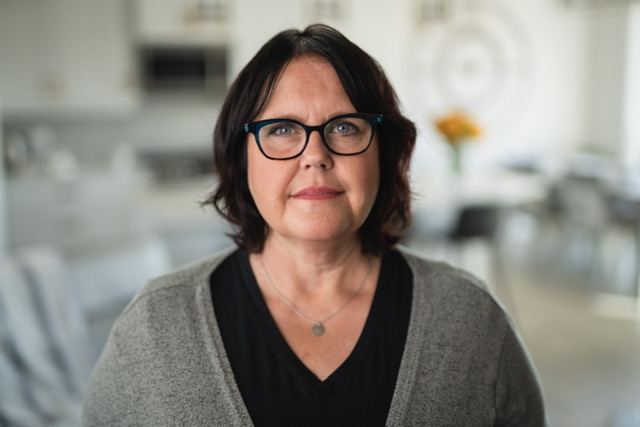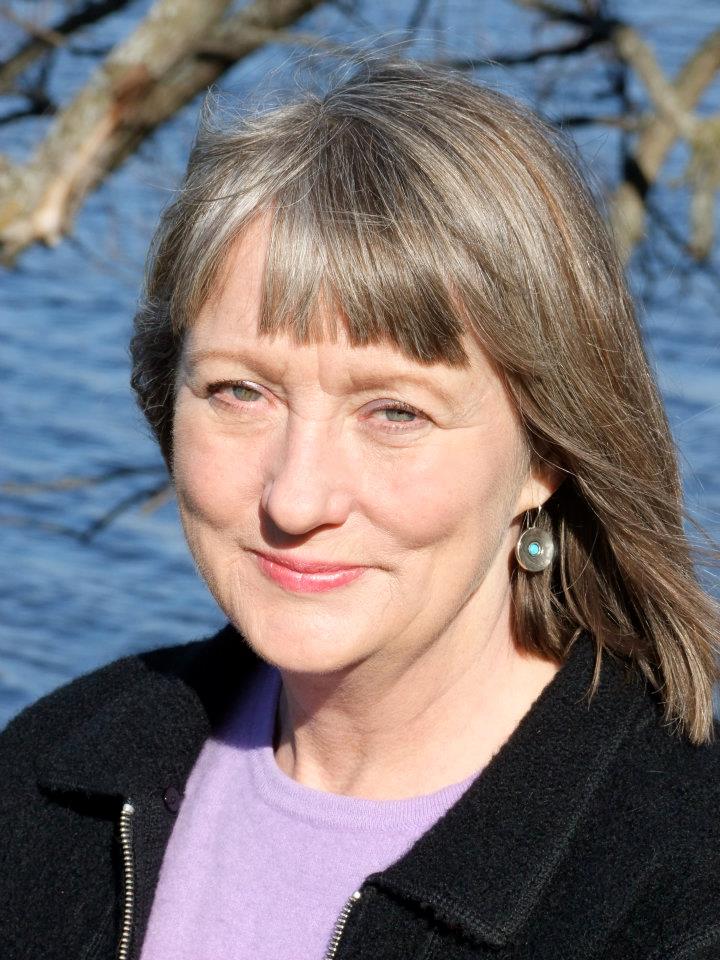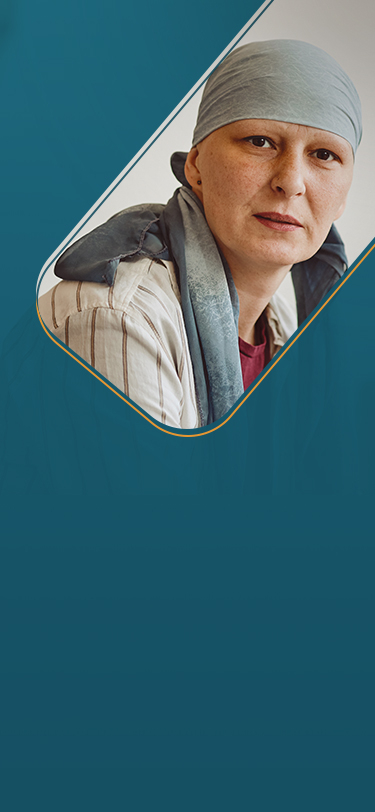Our Patient Stories
The Unseen Battle: Jenny’s Journey Through the Labyrinth of Waiting
Eight years ago, Jenny, then in her late forties, did what any responsible woman would do. She felt concern about her “lumpy” breasts and spoke to her family doctor. “Should I get a mammogram?” she asked, seeking reassurance, seeking action. The answer echoed back, dismissive and chillingly familiar: “No, you’re too young for breast cancer.”
That single sentence, delivered with an air of certainty, set Jenny on a path of trusting the system. It was a path paved with good intentions, perhaps, but ultimately riddled with missed opportunities and the crushing weight of time.
Fast forward to the spring of 2020. Jenny turned 50, and with that milestone came the long-awaited invitation for a screening mammogram. Hope flickered. Finally, a chance to be proactive. But even this first step was a slow dance with the calendar. Four months. Four months of waiting for the appointment.
September arrived, and the mammogram was done. No family history, the results came back “normal.” A sigh of relief, a moment of peace. But as we now know, normal isn’t always clear.
Two years later, another letter. Another screening mammogram. This time, the wait was even longer, five months until March 2023. Five months for a routine test that could hold the key to her future. Jenny, ever diligent, noted the information about breast density enclosed in the results letter, a quiet unease stirring within her.
Then, just three weeks after that “normal” mammogram, the truth revealed itself. Stepping out of the shower, her hand found it – a lump, undeniable, on the side of her left breast. The world tilted a little. She decided to give it a short amount of time to disappear. She just had a “normal” mammogram after all. The lump did not disappear.
The next week, she was at her doctor’s office. Three business days later, an ultrasound appointment. Ten days after that, the world spun, she received the devastating diagnosis: early-stage breast cancer. Two mammograms, two “normal” readings, and yet, the cancer had been there, growing, hidden in plain sight.
The system, designed to protect, had failed to see.
The following week, Jenny met with her surgeon, a plan for surgery taking shape. But the waiting wasn’t over. Two weeks later, an MRI was booked. And in that scan, another cruel twist: a second lump. More waiting, more uncertainty, as a biopsy confirmed it was benign. A small victory, but the emotional toll was immense.
Early July brought the lumpectomy. The physical battle had begun, but for Jenny, the true test of endurance was just starting. The summer of 2023 became a season of agonizing stillness. Her nurse navigator, the person meant to guide her through this bewildering journey, left for another job. And for eight long weeks, the role remained unfilled. Eight weeks of Jenny feeling adrift, unmoored in a sea of too few medical appointments and too many unanswered questions.
When a new nurse navigator finally arrived at the end of August, a glimmer of hope appeared. But it was fleeting. A week later, the new nurse navigator was on vacation. More waiting. More feeling forgotten.
Eventually, after a call to the patient representative at the cancer centre, an appointment was booked and the path forward became clearer: 16 rounds of radiation, four boosters and 5 years of anti-hormone therapy. A grueling regimen, with life-altering side effects, but one Jenny faced with courage, supported by her loving husband and children.
Jenny’s story is not just her story. It’s a stark reminder of the systemic cracks in our healthcare system, the agonizing delays that turn hope into despair, and the critical need for urgent action to support all phases of cancer care including survivorship. Access to a waitlist is not access to healthcare. No Canadian should have to endure such a labyrinth of waiting when facing a life-threatening illness.

Megan’s Story: A Journey Through the Healthcare System
Megan Sewell, a 54-year-old single mother from Quebec, was diagnosed with metastatic breast cancer in January 2016. Her journey through the healthcare system was fraught by wait times and barriers to getting the timely, appropriate care she needed, leading to a late-stage diagnosis.
One of the most significant barriers for Megan was the lack of access to a family doctor. At just 45 years old, she had been on a waiting list to get connected with a family doctor for over five years. She believes that having a family doctor who was aware of her family’s history of breast cancer, could have led to earlier detection of her own breast cancer. Ironically, she received a letter inviting her for a mammogram five years after her diagnosis.
In the early stages of her illness, she visited multiple walk-in clinics where her concerns were repeatedly brushed aside. She was told by the walk-in clinic that if she wanted to seek further medical attention in a more timely manner, she would need visit a private clinic. It was there, confronting the image of her mammogram displayed on a screen, that she learned she had a very aggressive form of cancer.
Even after her diagnosis, Megan continued to face challenges accessing timely treatment. The hospital closest to her home had a month-long wait just for a consultation with an oncologist. With nowhere to turn, Megan visited a private clinic. Megan believes it is unacceptable that so many people in Canada living with cancer are seeing their condition worsen as they wait on long wait lists for care. Every person should have timely access to publicly funded care and treatment.
This experience fueled her passion for advocacy, leading her to work with organizations like the Canadian Cancer Society (CCS) and the Health e-Matters advocacy program, mentoring students at McGill, and sharing her story.
Megan’s message to policymakers is urgent and clear: No one should be dismissed when they voice health concerns. Every single person in Canada living with cancer must have access to timely care and treatment including improved access to primary care. She emphasizes that cancer does not discriminate by age and that timely access to testing and diagnosis is crucial. Her own experience demonstrates how economic disparities can dictate access to life-saving care.
Megan’s story is a powerful reminder of the importance of patient advocacy, accessible primary health care, and the need for a system that listens and supports patients. She remains committed to using her experience to help others and drive meaningful change within the healthcare system.
There are far too many similar stories as people in Canada are waiting to be a priority. Cancer Action Now is working to bring forward challenges experiences by people in Canada living with cancer in accessing timely, high-quality cancer care, and calling on policy makers to make cancer care a priority.
Join the effort by signing up here. Stay connected by following us on Twitter, Instagram and Facebook.

Joanne’s Story: A Race Against Time
Joanne, a vibrant 54-year-old, has always had an extremely fulfilling life. 30+ years at her job, two sons in university, a loving spouse, and a passion for golf, pickleball, and lakeside escapes. But a shadow loomed, cast by a history she couldn’t ignore: her mother’s battle with ovarian cancer.
“Back in 2002, they just didn’t have the resources that we do now,” Joanne recalls, her voice tinged with a familiar sadness speaking about her mother’s passing. “We were in the dark.”
Determined to be proactive, Joanne requested genetic testing back in 2008. The hope was to understand her risk, and to be equipped with the knowledge to make choices that might impact her future. But the answer was a crushing blow: denied. “They wouldn’t test me,” she says, the frustration still palpable.
Years passed. Life went on. Then, in 2017, a sharp pain jolted Joanne’s world while she was playing softball. “Shooting pain down my left leg,” she remembers. She knew this pain wasn’t normal and an ultrasound led to a terrifying discovery: a large mass on her left ovary.
The whirlwind that followed was a blur of doctor’s appointments, CT scans, and surgery. Both ovaries, uterus, cervix, and 19 lymph nodes were removed. Six rounds of chemotherapy followed.
“Even with my family history, it still wasn’t clear if it was genetic,” Joanne says, highlighting the persistent uncertainty.
Joanne had initiated the genetic testing with her doctor, but her mother’s oncologist always insisted it was not a genetic disease. Around this time prevention was very much a hot news topic, and it made Joanne think about how this may have been prevented with genetic screening. At the time of her getting denied genetic testing, the geneticist said, “you must be very angry with us right now” given that Joanne was originally denied testing.
That was an understatement.
Her husband became her rock, attending every treatment and spending long days at the cancer center. Friends rallied, offering support and comfort. Joanne found solace in a support group, a “safe space” where she connected with other women facing similar battles.
But Joanne’s story isn’t just about survival; it’s about advocacy. She shares the story of a friend’s sister, whose abdominal pain was dismissed, leading to a late-stage diagnosis and a tragic outcome. “Often patients are not heard or taken seriously,” Joanne emphasizes, her voice filled with urgency.
Joanne’s message is clear: “Anyone can really have hope.” She points to Ovarian Cancer Canada (OCC) and local support groups as vital resources. She urges everyone to participate in the National Walk of Hope on September 7th, 2025, the 20th anniversary of the event.
But her plea extends beyond hope and support. “Treatment standards are about the same as they were 20 years ago,” she says, frustration creeping back into her voice. “We need more tailored approaches for those that maybe don’t respond to treatments.”
Joanne’s story is a stark reminder of the importance of genetic testing and early diagnosis. It’s a call to action for elected representatives and health system decision-makers to prioritize access to these life-saving tools.
“I’m grateful I had the education and knowledge about the disease,” Joanne concludes. But knowledge alone isn’t enough. We need to ensure that everyone has the opportunity to understand their risk and take control of their health.
There are far too many similar stories of people in Canada waiting to be a priority. Cancer Action Now is working to highlight the experiences of people in Canada living with cancer and trying to access timely, high-quality cancer care, and calling on policy makers to make cancer care a priority.
Join the effort by signing up here. Stay connected by following us on Twitter, Instagram and Facebook.
There are far too many similar stories as people in Canada are waiting to be a priority. Cancer Action Now is working to bring forward challenges experiences by people in Canada living with cancer in accessing timely, high-quality cancer care, and calling on policy makers to make cancer care a priority.
Join the effort by signing up here. Stay connected by following us on Twitter, Instagram and Facebook.

Harjeet Kaur – From Edmonton to advocate, finding light in the face of cancer
Harjeet Kaur, a vibrant 38-year-old from Calgary, is the embodiment of resiliency. Before cancer, she was enjoying her new-found life in Canada, as her and her husband moved from Dubai in 2018. She was enjoying her job at the Edmonton Chamber of Commerce, she was cheerful and bubbly with dreams of family and a bright future in this new country. But in 2019, life took an unexpected turn.
It began with a persistent fever, that was dismissed at first as a virus in May of 2019. Then came the blackouts, the endless tests, and after a month of advocating and urging her medical team for more tests, she was admitted to hospital in June and ended up being there for two and a half months where she underwent testing, scans, biopsies and surgeries and she started to feel like a research study. Finally, in August of 2019 at the age of 32, Harjeet received her devastating diagnosis: stage 4 Non-Hodgkins subcutaneous T-cell Lymphoma, complicated with HLH (auto-immune disease). At such a young age, Harjeet’s world shattered. She felt like she needed to be strong for her family, but once she was able to be alone with this new reality, she broke down crying like she had never cried before.
The road ahead was daunting. Aggressive chemotherapy sessions that left her weak and exhausted, a stem cell transplant during the pandemic where her brother miraculously was a 100% match, and the crushing realization that she’d lost her ability to conceive. Through it all, Harjeet faced each challenge with unwavering determination. When she realized she was losing her hair, this was extremely challenging as in Sikh culture, women grow their hair and never cut it. She eventually decided to shave her head, and her husband shaved his head as well in solidarity, which is just one small testament to the power of love and support.
Harjeet’s stem cell transplant was scheduled for March of 2020 in Calgary. At this time, her family had travelled from India to be there for her, but as we all know 2020 turned our medical system upside down. Because of the COVID-19 pandemic her surgery was rescheduled for April, and her entire family made the move from Edmonton to Calgary as travel back and forth was not possible. She underwent a stem cell transplant on April 14, 2020, completed 30+ days of isolation while still undergoing chemotherapy and radiation. At this time, she knew she was struggling mentally, physically, financially and needed an outlet so she started writing in her journal.
Harjeet’s story is not just about survival, it’s about transformation. Cancer ignited a new purpose within her: to help others navigate the isolating and often terrifying world of cancer. Recognizing the lack of support for South Asian patients, she created a supportive online community on Facebook and Instagram, a safe space where individuals can share their experiences and find solace in shared understanding.
“Cancer turned me into a different person,” Harjeet reflects. “I respect the woman I have become post-cancer diagnosis. The main purpose of my life has been to help and support others.”
Her journey has been marked by immense challenges: the physical toll of the treatment, the emotional strain on her family, and the financial burdens that often accompany a cancer diagnosis. There were many moments of despair, of writing goodbye letters, and of feeling like a burden on her family who flew halfway around the world to be with her. But through it all, Harjeet found strength in her family, in therapy, and in sharing her story with the world.
Now, as a patient advocate and patient partner, Harjeet is dedicated to making a difference. She emphasizes the importance of hope, even when faced with seemingly insurmountable odds. “Hope is a big word,” she says, “but when people say ‘you’re strong’, I’m not strong. I don’t have a choice.”
Harjeet’s message is clear: never lose hope and never be ashamed to ask for help. Her story is a powerful reminder that even in the darkest of times, light can be found through connection, resilience, and a commitment of supporting others.
There are far too many similar stories as people in Canada are waiting to be a priority. Cancer Action Now is working to bring forward challenges experiences by people in Canada living with cancer in accessing timely, high-quality cancer care, and calling on policy makers to make cancer care a priority.
Join the effort by signing up here. Stay connected by following us on Twitter, Instagram and Facebook.

Christine’s Story
Christine McKay, a 67-year-old retired mental health and addiction therapist, has been reflecting on her 12-year journey with lobular breast cancer. Living semi-rurally with her partner and dog, she dedicates much of her time to lobular breast cancer research and advocacy, balancing it with her love of travel, gardening, and reading.
At 56, Christine’s cancer journey began not with a palpable lump, as is often the case, but with subtle changes: nipple retraction and peau d’orange skin. Recognizing these as potential warning signs, she promptly consulted her family doctor. The diagnosis process was efficient. Within two weeks, and after emphasizing the urgency to the Breast Health Clinic in Ottawa, she received her diagnosis, stage 3C, advanced breast cancer.
Christine feels fortunate to have received her diagnosis 12 years ago, noting that care at the time was streamlined and efficient. She’s aware of the current challenges faced by others, particularly in British Columbia, where limited radiation capacity can lead to patients being sent to the US for treatment. Her semi-rural location necessitated travel for some of her care—82 kilometers round trip to the cancer center and 140 kilometers round trip for radiation therapy.
Christine’s cancer experience transformed her into a passionate patient advocate. She founded a Facebook group for Canadians with lobular breast cancer and actively participates in research advocacy for various funding projects. She has witnessed the evolving landscape of cancer care, observing both improvements and concerning care gaps, particularly for those in rural areas.
Her experience caring for her sister with cancer showed Christine the glaring care gaps that exist in Canada’s cancer care system, particularly the significant financial burden that comes with a cancer diagnosis.
When her sister was diagnosed with a rare liver cancer, Christine took a leave from work to care for her, a leave that ultimately became permanent. She saw first-hand the lack of flexible, part-time options and the absence of long-term disability support, which would have allowed her to continue working while providing care. Her sister also took on significant financial stress, spending $1,500 out-of-pocket annually for medications.
The stringent requirements of the federal Disability Tax Credit also presented challenges for Christine and her sister, leaving them and many other patients without crucial financial support.
Recalling her sister’s rapid decline and death just nine months after her diagnosis, Christine wants to continue raising awareness for rare cancers like bile duct cancer.
Above all, Christine is calling for action at all levels of government to address the financial burden of a cancer diagnosis on people in Canada living with cancer.
The provincial government in B.C. should invest in improving equitable access to treatments under the provincial drug program so patients do not have to pay thousands of dollars in out-of-pocket costs and the federal government must look at the stringent requirements of the federal Disability Tax Credit to address the barriers it presents for people in Canada living with cancer.
There are far too many similar stories as people in Canada are waiting to be a priority. Cancer Action Now is working to bring forward challenges experiences by people in Canada living with cancer in accessing timely, high-quality cancer care, and calling on policy makers to make cancer care a priority.
Join the effort by signing up here. Stay connected by following us on Twitter, Instagram and Facebook.

Katie’s Story
Katie Hulan, a resident of Victoria, British Columbia, was diagnosed in 2021 at the age of 33 with stage 4 lung cancer and told she would have a few months to live. Katie loves the outdoors and adventure. As a healthy young woman, this was a complete shock to her. Prior to this diagnosis Katie had been feeling good about her health, so this news was not only surprising to her but to her partner, friends and family as well.
Six months leading up to her diagnosis, Katie had developed a cough that was getting progressively worse week by week, and throughout the course of those six months, she worked with her family doctor to try to come up with some sort of diagnosis.
Over the course of two months, Katie’s doctor prescribed her multiple different puffers, but nothing seemed to work. She was seen by respirologists, and eventually a CT scan and blood work confirmed that she had a mass in her lung.
Over the course of the next few days as Katie grappled with this life changing diagnosis, she learned that the cancer had also travelled to her brain and liver and was told that she only had a few months to live. Katie was determined to figure out what the next steps were for her and her family. She was certain there was something that could be done that would Improve her prognosis.
Katie feels she should have been diagnosed sooner. It is unacceptable that she had to wait six months before she received her diagnosis.
After months of self-advocacy, Katie was able to access genome-based testing. This was a turning point as the genome-based testing revealed that Katie was eligible for a targeted therapy that could significantly improve her outcomes. She was prescribed the targeted therapy and as she continued this course of treatment, her cancer stopped spreading and her outcomes significantly improved.
Katie’s diagnosis truly impacted her life. It was worrisome and scary from day one. She was only given a few months and didn’t know what her quality of life would be.
Given her experience navigating the cancer care system in Ontario and British Columbia, Katie is a passionate advocate, calling on elected officials to act urgently to address the long wait times from testing to diagnosis. It is unacceptable that people in Canada living with cancer are waiting far too long to get the care they need. Elected officials need to prioritize investments to address wait times so Canadians are no longer dying to be a priority.
Katie is also calling on policy makers to ensure that our health system is equipped to adopt genome-based testing. Being able to access genome-based testing was a turning point in Katie’s journey and so many people in Canada living with cancer are facing barriers in accessing innovative care and treatment.
There are far too many similar stories as people in Canada are waiting to be a priority. Cancer Action Now is working to bring forward challenges experiences by people in Canada living with cancer in accessing timely, high-quality cancer care, and calling on policy makers to make cancer care a priority.
Join the effort by signing up here. Stay connected by following us on Twitter, Instagram and Facebook.

Lindsay’s Story
Forty-year-old Lindsay Gustafson, a grade 1 and 2 teacher from Winnipeg, was diagnosed with breast cancer at the age of 38. During a camping trip to Kenora, she noticed a lump near her breast. Once she returned home, Lindsay was unable to get an appointment with her family doctor. She had nowhere else to turn and eventually had to go in to see a doctor at a walk-in clinic who recognized the potential seriousness of her condition and ordered a biopsy.
On October 26, 2022, Lindsay received a diagnosis: stage 2 triple-negative breast cancer.
After fourteen months of treatment including 16 rounds of chemotherapy and a lumpectomy and lymph node removal, 99% of the cancer was successfully eliminated. Just as life seemed to be returning to normal, a routine follow-up scan in January 2024 revealed a small lung nodule, too small for a biopsy. A “wait and see” approach was suggested by her doctors.
By April 2024, the nodule had doubled in size, confirming Lindsay’s breast cancer had metastasized to her lungs, progressing to stage 4.
The next two months, Lindsay underwent a number of scans, tests, and consultations with surgeons and radiologists. A lung biopsy revealed a single tumor, making her eligible for surgery. However, due to long wait times, the surgery date wasn’t scheduled until September, then pushed back to late September, and finally to October. By then, five months had passed since her last CT scan, necessitating a new one.
Two days before her 40th birthday, she found out that her lung tumor had doubled in size, and 25 new nodules had appeared. In just five months, the cancer had gone from one lung nodule to 26. Surgery was cancelled, as was radiation, leaving chemotherapy as the only option.
The wait times Lindsay experienced were unacceptable. A stretched health care system fraught with delays and wait times has left so many Canadians living with cancer waiting months to get the care and treatment they need.
Frustrated by the delays, Lindsay spent considerable dollars out-of-pocket between July and September, consulting a naturopathic doctor and undergoing alternative therapies in a desperate attempt to control her diagnosis. Even simple tasks like parking at the hospital became a financial burden, with limited and expensive options forcing her to rely on services like Wheels of Hope.
Our cancer system is failing people in Canada. They are waiting far too long to get the care they need. Policy makers need to address these gaps, make investments in the system to ensure Canadians can rely on faster, better access to cancer care.
Going through this journey, Lindsay continues to raise awareness, actively seeking information and support through online groups, advocating for access to financial grants and resources, and participating in research studies.
She serves on a review panel for cancer research grants and is a patient advocate for various organizations, including the Terry Fox Foundation and the Pan-Canadian Palliative Care Research Network.
Lindsay’s message to elected officials is clear: address the wait times in our cancer system. Canadians living with cancer should not be waiting months to get the life-saving care and treatments they need. Elected officials need to prioritize this. Canadians living with cancer should not dying to be a priority.
There are far too many similar stories as people in Canada are waiting to be a priority. Cancer Action Now is working to bring forward challenges experiences by people in Canada living with cancer in accessing timely, high-quality cancer care, and calling on policy makers to make cancer care a priority.
Join the effort by signing up here. Stay connected by following us on Twitter, Instagram and Facebook.

Tired of fighting for equal care in Canada: Brent’s ongoing battle with cancer
Brent Joel, a resident of North Burnaby in Metro Vancouver, was first diagnosed with non-Hodgkin’s lymphoma and Myelodysplastic syndrome (MDS) in November of 2022, at the age of 65. Prior to his cancer diagnosis, Brent lived his life to the fullest and was looking to enjoy his life as a retired firefighter. After years of feeling tired and run down, Brent was shocked to receive his cancer diagnosis.
Brent’s doctors advised him to treat the non-Hodgkins lymphoma first, before addressing the MDS, as it was a less aggressive form of cancer. Brent went through multiple rounds of chemotherapy in February of 2023, which thankfully was successful and put his lymphoma into remission. Now Brent was waiting to see what the treatment plan would be for his MDS.
Brent’s medical team decided that to treat Brent’s MDS and his symptoms of exhaustion and anemia, he would be given weekly blood transfusions as well as being put on Decitabine/Cedazurdine.
This treatment left Brent even more tired than before with many side effects such as extremely high enzymes in his liver and a horrific cough. He was not able to function on a daily basis. Additionally, he and his wife Michele were driving all the way from Burnaby to Vancouver twice a week for his transfusions. His medical team chose to take him off of this treatment and at this time they felt it was too toxic for his system to handle.
There is something out there that could help Brent. The drug called Reblozyl. This is a treatment that is not currently covered in British Columbia but covered everywhere else in Canada. Due to this disparity, the treatment would cost Brent and Michele over $100,000 annually out of pocket. The advantage of Reblozyl is that it increases the red blood cells and hemoglobin in the blood, with the intent of reducing the anemia requiring fewer or no transfusions. Too many transfusions can cause iron overload in the liver.
Brent and Michele have dedicated their time to advocate for the right treatments to be available and accessible for people in British Columbia living with cancer who need them.
Brent’s message to elected officials – improve timely and equitable access to the treatments British Columbians need.
Brent and Michele’s message to others going through a similar journey is to take every day as it comes. There will be good days, and there will be lots of bad days. Michele has been a constant support for Brent throughout his treatment, and this experience has been hard on them and their three adult children and their families. Brent and Michele are hopeful that in the future, other families in B.C. will not have to fight as hard to have their loved ones taken care of.
There are far too many similar stories as people in Canada are waiting to be a priority. Cancer Action Now is working to bring forward challenges experiences by people in Canada living with cancer in accessing timely, high-quality cancer care, and calling on policy makers to make cancer care a priority.
Join the effort by signing up here. Stay connected by following us on Twitter, Instagram and Facebook.

Garry’s Journey
Garry is a 67-year-old retiree whose hobbies include music, kayaking, fishing, trail walking and wildlife photography. Garry found himself battling a frustrating and fragmented healthcare system following his prostate cancer diagnosis. What should have been a straightforward path from diagnosis to treatment, became a frustrating journey of long waits, extensive travel, and inadequate care.
Garry was first diagnosed in London, Ontario. It took several attempts and repeated blood tests that showed rising Prostate-Specific Antigen (PSA) levels. After lengthy and agonizing wait times, he was finally able to secure an appointment with a surgeon. The delays were further exacerbated by a planned move from Woodstock to Petawawa. The hospital, aware of his relocation, inexplicably scheduled crucial scans after his move date, forcing him into a cycle of lengthy trips back and forth which sometimes took up to 6 hours.
Following his move to Petawawa, Garry struggled to find a new family doctor, meaning that he had no choice but to remain reliant on his family doctor in London which made communication with the hospital where he lived more complicated.
Garry was officially diagnosed on August 12th
A referral to Pembroke hospital resulted in almost a two month wait for an initial consultation, where he learned his cancer was worsening. This initiated a new round of arduous travel between Pembroke and Ottawa, a two-hour journey each way. Early morning appointments often required overnight stays in hotels, adding financial burden to the already considerable emotional and physical strain caused by his diagnosis.
The following January, Garry finally received the surgery that he had been waiting for. He believes the prolonged delays significantly contributed to the aggressive growth of his cancer, necessitating more extensive surgery, including the removal of part of his bladder and some lymph nodes. The accumulated costs of travel, accommodation, and parking, combined with the emotional toll of navigating a fragmented and backlogged healthcare system, compounded the challenges of his cancer journey.
Garry underscores the critical need for improved communication and coordination within the healthcare system, urgent action to address wait times and backlogs and a recognition that timely access to quality care is not a privilege but a fundamental right.
There are far too many similar stories as people in Canada are waiting to be a priority. Cancer Action Now is working to bring forward challenges experiences by people in Canada living with cancer in accessing timely, high-quality cancer care, and calling on policy makers to make cancer care a priority.
Join the effort by signing up here. Stay connected by following us on Twitter, Instagram and Facebook.

Phil’s Journey – Living well with multiple myeloma
In 2019, at the age of 57, Phil – a retired pastor, teacher and avid runner started experiencing unusual fatigue and shortness of breath during his runs out in the great outdoors of British Columbia. Phil scheduled an appointment with his doctor immediately, where he discovered he was anemic and prescribed iron pills. However, a fractured rib during a routine run, led to further tests and a referral to a hematologist. The hematologist called Phil to tell him they would be able to see him the next day. He knew something must be serious, but Phil was not thinking about cancer at all. After a few more tests, including a bone marrow biopsy, Phil received his diagnosis: multiple myeloma.
When it came to Phil’s eventual stem cell transplant, he was surprised to learn there is only one place in the province that performs this treatment. Phil and his wife were fortunate to be able to make the journey from Whiterock into Downtown Vancouver. However, not all patients would be in a position to do so.
Phil’s message to British Columbia’s government in waiting – improve timely and equitable access to the treatments and therapies people in British Columbia living with cancer need.
Following his diagnosis, Phil underwent chemotherapy, a stem cell transplant, and has since remained stable through maintenance chemotherapy. Like many others living with cancer, Phil experienced a relapse. He will soon be starting a new line of therapy.
Phil’s journey has not been without challenges. During his remission, while on maintenance chemotherapy, his chemo medication was unilaterally changed to a generic version of the drug. This brought significant adjustment challenges. CAR-T cell therapy, a new and efficacious treatment for multiple myeloma is not yet approved across Canada, which would improve the lives of many people living with the disease.
Phil has been lucky to have the support of family and friends throughout this journey. When he was first diagnosed, a friend flew all the way from Colorado to be with him for some of his treatments. His wife has also been an immense support from day one. The support Phil has received has made a lasting impression on him. Having people show up for you can help you cope with the emotional and mental toll of living with cancer. This is why Phil got involved with advocacy as a patient advisor with Myeloma Canada.
Phil has compared cancer to running a marathon. It’s not easy, but it is conquerable. He continues to be a relentless advocate for improved access to care and treatment for people in British Columbia and across the country living with cancer.
There are far too many similar stories as people in Canada are waiting to be a priority. Cancer Action Now is working to bring forward challenges experiences by people in Canada living with cancer in accessing timely, high-quality cancer care, and calling on policy makers to make cancer care a priority.
Join the effort by signing up here. Stay connected by following us on Twitter, Instagram and Facebook.

